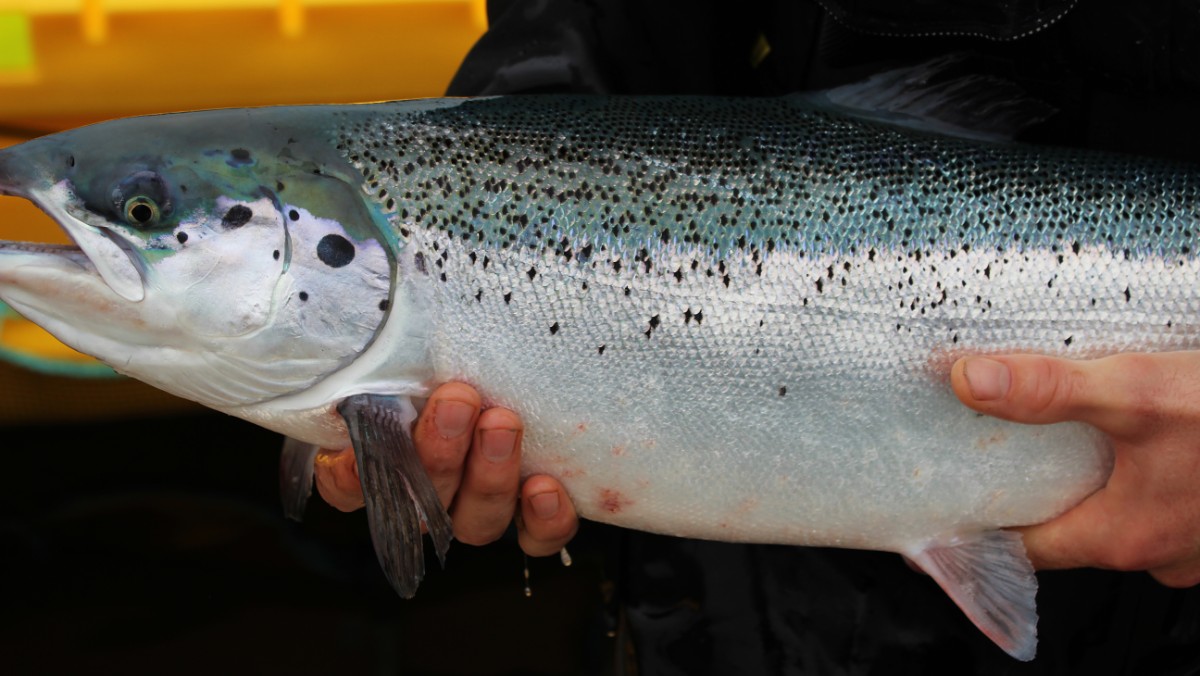A comprehensive study on the potential of land based fish farming in
Ireland strongly supports investment in new facilities for the
freshwater portion of salmon production. Recirculation (RAS) systems
provide opportunities for larger year-round smolt supply for finishing
at sea to give competitive edge to Irish industry.
However, there are a number of biological as well as financial issues in
extending RAS to the full fish lifecycle, which at present renders this
technology non-viable under Irish conditions.
Land-based farming of fish has been carried on for thousands of years
but new technology to recycle water in closed containment units has
sparked new interest in farming fish in tank systems on shore.
Members of the Irish Farmers' Association
(IFA) and investors interested in this area of business have been
seeking more information from the organization on the potential of this
type of farming in Ireland. Until now there has been no scientific or
economic appraisal of the benefits, costs or potential of land based
salmon farming in Ireland.
Commenting on the paper, IFA Aquaculture Executive, Richie Flynn said,
"We can now say with confidence, having heard the same messages
recently in Norway from companies like AKVA, Deloitte and Grieg,
that there is a clear advantage for the industry to concentrate efforts
with land based RAS on the freshwater part of the life cycle up to
smolt stage. Going further to suggest the salmon can spend its whole
life on land must take into account that the end result would be a very
different product and the cost to farm it would take of EUR 33.1 million
in capital investment for every 5000 tonne unit. To expand to 38,000
annual output in Ireland as envisaged in government policy, we would
need to invest over EUR 200 million without any hope of a return on
capital for over a decade - that is with all things going absolutely
perfectly and the current record salmon prices staying stable for an
unbelievably long period."
In 2014, IFA Aquaculture asked one of the world experts in the area of
recirculation and land based farming, Ivar Warrer Hansen to produce an
independent report for its members to address the following:,"What are
the technical requirements, capital and running costs involved in a
2,000 tonne p.a. salmon farm in a sea-water recirculation unit producing
4.5 kg average weight fish."
Warrer Hansen was asked to include relevant topical issues including the
currently most technically feasible RAS units, the cost in Ireland of
construction, abstraction, energy etc., associated with producing the
equivalent of current Irish output (c. 15,000 tonnes). ISGA also asked
for an update on the development of RAS worldwide and the commercial
success of farming in other countries.
The resulting report is a comprehensive response to these questions and
the research and conclusions it contains provide a valuable and highly
relevant addition to knowledge of a potentially valuable area of food
production in Ireland. It should provide a basis for decision making and
strategic thinking for industry, regulators, legislators and customers
of the Irish farmed salmon industry.
The conclusions of the study are: - RAS is a proven technology with a valuable role to play in the
freshwater part of the life cycle of salmon. The Irish industry can
avail of significant overall efficiencies by using RAS to increase smolt
size/weight at transfer to sea. This will enhance productivity with a
faster turnover of stock, reduced disease risk (including parasites such
as sea lice) and improve overall efficiency of marine site use.
- It is now possible to produce a market-size salmon in RAS. Two
pilot-scale and one commercial unit have managed to place on the
consumer market approximately 1,000 tonnes over the last few years but
this could increase as more small units are brought into production in
various countries (the overall global production of salmon from
conventional marine sites is approximately 2 million tonnes per annum).
Operational costs, exclusive of depreciation and finance, can compare
with sea site production. Capital costs are too high, however, and make
it difficult to be competitive, especially during those regular periods
where production costs rise above market prices. This, together with the
phenomena of unmarketable early maturing males, will dictate that it
will still be some time before there is enough evidence to support a
move towards an economically sustainable salmon production in land based
systems under Irish conditions. From an investment point of view it
would be difficult to attract the substantial private finances required,
given the advantages of conventional systems, distance to market, scale
of current operations and recent scientific work which gives confidence
in the sustainability of sea-rearing and the environment.
- Development of new RAS-compatible salmon strains and cheaper
production systems will occur eventually. The industry in Ireland is
interested and open to new, sustainable technology and embraces
scientifically proven methods of improving efficiencies and production
systems, Irish farmers will follow closely the progress internationally
of full-cycle RAS production and review their strategies accordingly in
the future.
- The industry will take forward these conclusions and the detail
of the report with the Department and relevant development and
scientific agencies and seek to have strategies on public funds,
licensing and infrastructure modified to provide for the best possible
environment to implement the report recommendations on freshwater RAS.

Reproduced with permission, Copyright www.fis.com
|